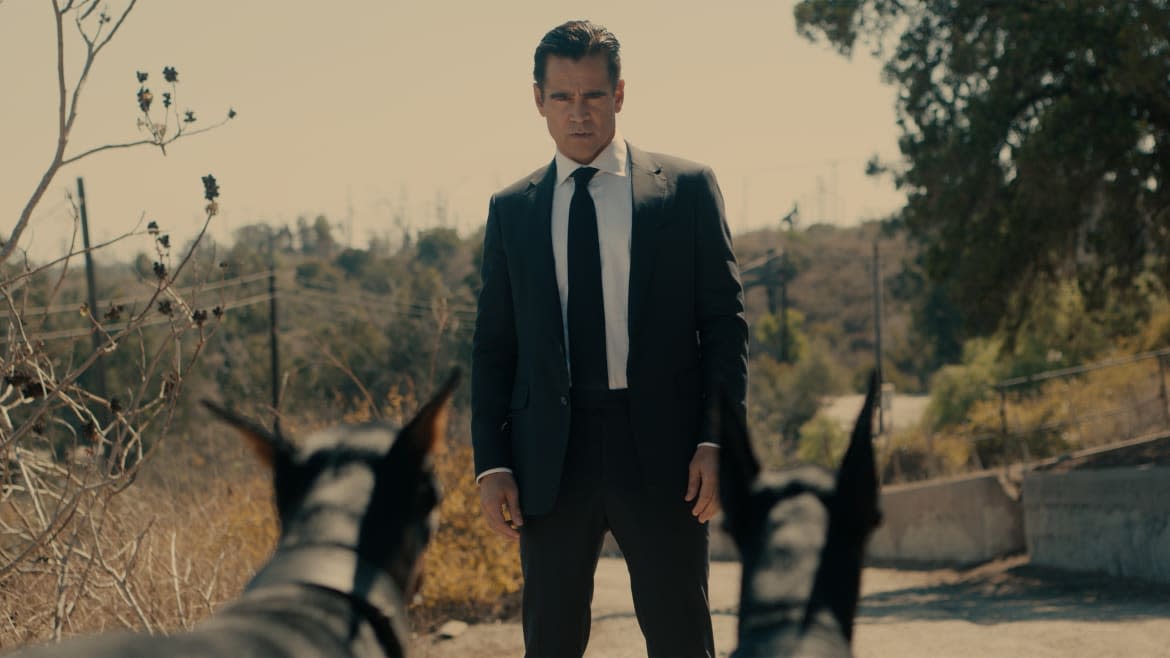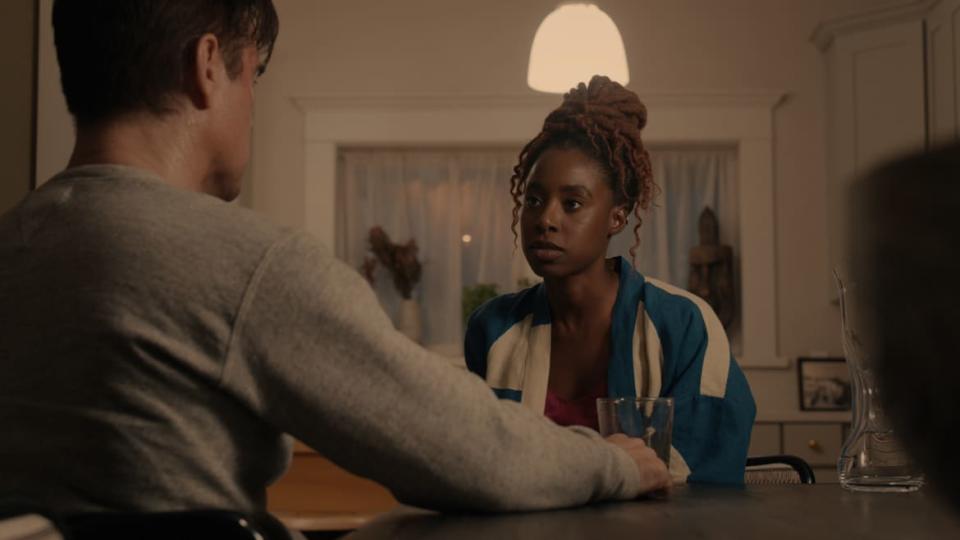‘Sugar’ Destroyed Itself With One of the Worst Plot Twists Ever

- Oops!Something went wrong.Please try again later.
- Oops!Something went wrong.Please try again later.
- Oops!Something went wrong.Please try again later.
(Warning: Spoilers for Sugar ahead.)
Over the course of its first five episodes, Sugar has detailed dapper movie-obsessed Los Angeles private eye John Sugar’s (Colin Farrell) investigation into the baffling disappearance of Olivia Siegel (Sydney Chandler), the daughter of powerful movie producer Bernie (Dennis Boutsikaris), half-sister of scumbag former child actor David (Nate Corddry), and granddaughter of Hollywood titan Jonathan (James Cromwell). Nonetheless, Olivia’s whereabouts have only been one of the mysteries at the heart of Mark Protosevich’s Apple TV+ series, since, in various small but telling ways, it’s also teased a bigger secret lurking beneath its authentic—and self-referential—noir surface. As suggested by its numerous subtle hints, that surprise has to do with Sugar and his professional and personal acquaintances, all of whom are members of a vague close-knit organization. And at the end of its sixth episode, the show finally gave up the goods, revealing the real paradigm-altering nature of its protagonist.
John Sugar is an alien. Like, from outer space. And, in particular, from a distant planet whose inhabitants resemble blue-skinned cast-offs from Avatar.
Colin Farrell’s ‘Sugar’ Has a Disastrous Bombshell Twist
This is a twist of a most dire sort, and certainly the worst of many potential bizarre bombshells that might have been dropped on unsuspecting and/or suspicious viewers. Protosevich had, to this point in his tale, faithfully fashioned his material as a meta throwback that embraced its crime-cinema roots in terms of both its plot and its main character, who’s deliberately modeled himself after genre godfathers such as Humphrey Bogart and Glenn Ford. That Sugar and, by extension, the show was engaged in a nostalgic performance was part of its wink-wink appeal, and bolstered by the fact that its routine was authentic and affectionate. Here, it seemed, was a venture that lived, breathed, and loved noir, and was confident about walking in its footsteps while exuding its own distinctively stylish and dreamy personality.
Creator/showrunner Protosevich, however, clearly thought that riffing on The Big Sleep, Chinatown, and additional predecessors wasn’t enough; rather, a genuine head-smacker was of vital importance. Sugar’s alienation, his loneliness, and his guilt over the traumatic abduction of his sister Djen could not stand on their own. Nor could his selflessness, his disinterest in (and struggle to avoid committing) violence, his fondness for classic crime fiction, his acute sleuthing skills, or his easygoing connection with dogs. Despite Sugar having various characteristics that made him a unique and compelling hero, he was somehow incomplete without also being a little blue man from a far-off world who can deflect bullets with his bare hands (as he demonstrates in this sixth chapter) and who’s on Earth to act out a lifelong gumshoe pantomime. Which, of course, is abject nonsense. And yet, here we are.
Considering that Sugar’s true identity was always directly tied to Ruby (Kirby Howell-Baptiste), Henry (Jason Butler Harner), and the rest of his covert-organization pals, it’s not spoiling much to state that he’s not the only one of Sugar’s players who uses intravenous drugs to mask his extraterrestrial origins. As such, Protosevich’s series is really a sci-fi affair masquerading as a detective story. Those two genres are not, on the face of things, incompatible, as evidenced by Blade Runner and its future-noir progeny. In this instance, though, the marriage feels arbitrary and unnecessary, both because Sugar himself needs no out-of-this-world powers to resonate as an engaging protagonist, and because Olivia’s disappearance—and the eye-openers to come about her fate—could have just as easily been handled without any alien mumbo-jumbo. Simply put, if Sugar removed this central outlandish element, it would still work.

Colin Farrell and Kirby.
The question, then, is why indulge in a twist that merely undermines the reality that’s already been established, thereby turning everything gimmicky and goofy? Sugar provides no such answers in its sixth episode, and unfortunately, it does likewise in its upcoming final two installments, which—no spoilers!—barely bother to coherently flesh out Sugar and company’s purpose on our planet. It’s just a sci-fi turn of events for the sake of itself, devoid of any narrative of thematic reason that might justify its existence. It adds a small wrinkle to the idea that, with his fine suits, swanky Corvette, and involvement in a byzantine whodunit involving Tinseltown power players, Sugar is mimicking his big-screen idols. But it does so to no appreciable end, and renders most of the preceding action a long-form stunt designed to set audiences up for a bolt from the (literal, ugh!) blue.
From Djen’s name, to the furtive nature of his compatriots, to Sugar’s habit of gazing upwards in sad contemplation, there were clues along the way that Sugar had its head in the cosmic clouds. Still, that does little to mitigate the disappointment of its big twist. So assured at its outset, the series appeared to be a neo-noir that knew where it came from and had a strong idea of where it wanted to go. Alas, that destination turned out to be a galaxy far, far away—which, in this instance, is the same thing as down the drain.
Get the Daily Beast's biggest scoops and scandals delivered right to your inbox. Sign up now.
Stay informed and gain unlimited access to the Daily Beast's unmatched reporting. Subscribe now.

